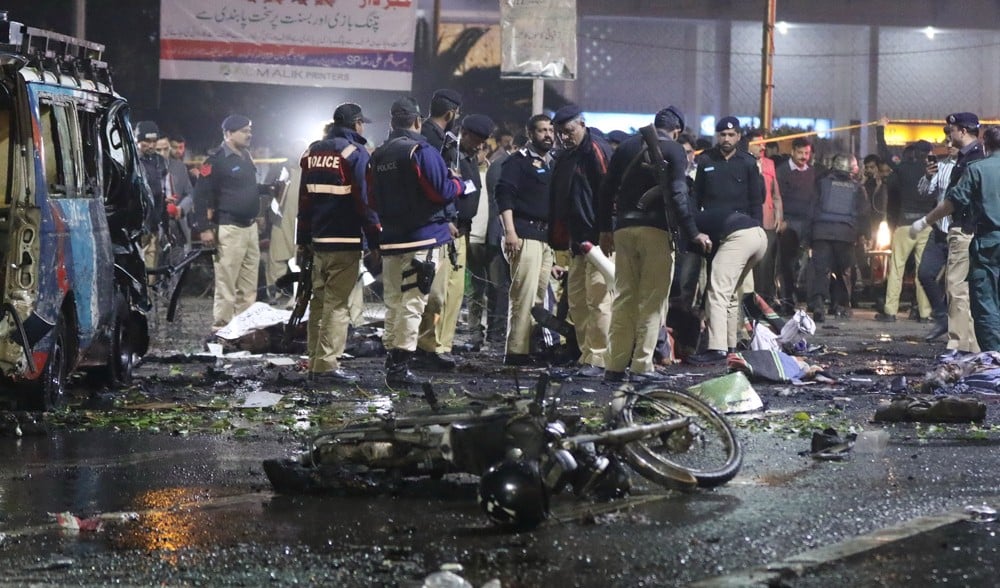
A bomb goes off in your city in a busy area that you frequent and no matter how far away from it you are, a chill runs down your spine

It’s the same route to work every day. These roads, you know now, like the back of your hand. Sometimes, exhausted at the end of a workday, you linger for a moment after the light turns green; sometimes you engage in futile bargaining with a roadside vendor; sometimes you stop your car on the roadside to take a phone call -- for a moment you have forgotten where you live, and you carry on with life as if nothing was amiss in this country. And then something like this happens -- a bomb goes off in your city in a busy area that you frequent and no matter how far away from it you’re sitting at the moment, a chill runs down your spine.
"It could have been me," you think.
Just the other day, you were driving past the Charing Cross to run some errands and you thank your lucky stars you weren’t the day of the attack instead.
Guilt accompanies the sense of relief you feel. You struggle with it for about a day or two until those messages start circulating: "Security on high alert. Avoid all crowded places. X and Y Markets in particular. Stay safe!"
You start taking mental notes. Avoid market. Avoid loitering. Avoid road. Can I go to the ATM to get cash? What if I have to go to the bank? Instead of counting sheep, you count your worries that night. Sleep comes eventually, and in the morning, you skim through the papers for details as guilt tugs at the heartstrings.
Read also: Terror returns
You are surprised to hear the same sounds that you do every day -- the croaking of crows, the whirring of traffic, and the jingle of the ice cream man as he comes to your street with his little bike-propelled cart. You wonder how people who have been impacted by the blast are dealing with the fact that life has not stopped to give them time to grieve. Soon, there will be utility bills that they will be expected to pay, banking transactions that they will have to perform and grocery items that they will have to buy.
You take your trauma amplified by compassion for the affectees with you as you drive to the workplace. You are more nervous than usual. Avoid driving close to a police vehicle. Avoid army trucks. Avoid trucks of any kind. Did the motorcyclists with the backpacks look a little flustered to you? Why did they hold your gaze for longer than is the norm? As you wait in queue at a military checkpost to ‘prove your identity,’ you wonder to yourself if this is yet another one of those crowded places.
You swallow nervously, and try to get an idea of how the men in uniform are holding up. You can tell they are tired and upset by their faces; and you wonder what it is like to witness your colleagues and higher-ups getting blown to smithereens in terror attacks and still stand guard.
Read also: A gentle soul
But there is no time to grieve for any one of us. News rolls in from all over the country. Another bomb goes off in a judge’s car in Peshawar this time, then Lal Shahbaz Qalandar’s shrine is painted crimson with the blood of devotees, and in the far, far away land of Balochistan, three military personnel lose their lives in a roadside IED blast.
This outfit, and that outfit try to take the trophy home. You question if the interior minister was right in understanding the philosophy of that outfit, and if this outfit really had its limbs cut off by the Operation.
There’s a collusion of goals between the two (or three?); maybe that’s what’s causing the confusion. Everyone has a theory and a mouthful of questions but they dare not speak.
On the way back home, you keep high alert. The concertina wire encircles all important buildings; the walls are higher, gates are more difficult to get through, and traffic cones and barriers dictate your path. There are more men in uniforms with bigger guns keeping a watchful eye-- the first line of defense in case terror strikes again, you think. They are targets and you are fair game too, you conclude.
While waiting at a traffic signal on the way, your phone starts ringing and you answer it to discuss utility bills, grocery shopping and pending errands at the bank. The light turns green as the call ends and the horns start blaring. You seem to have forgotten where you live again. Avoid the road. The security is on high alert -- didn’t you get that text message?